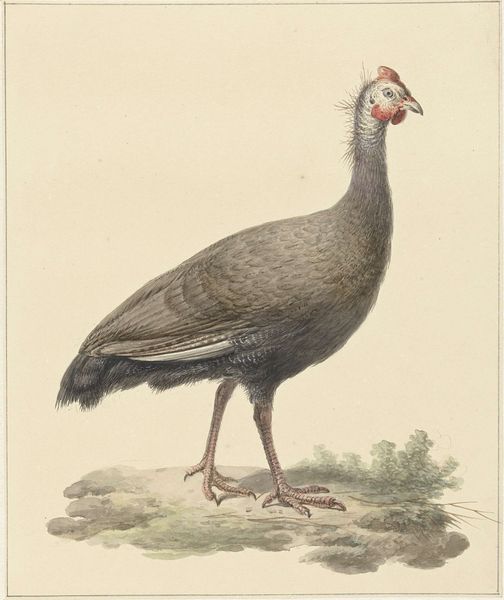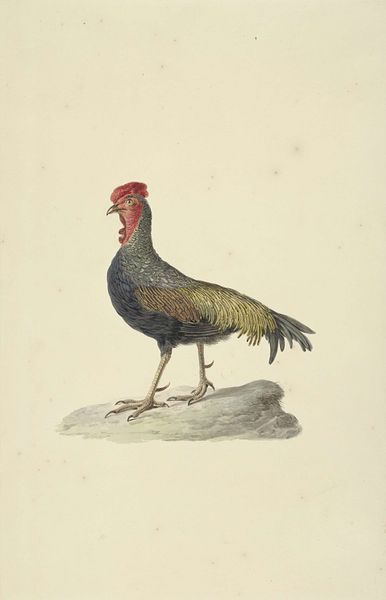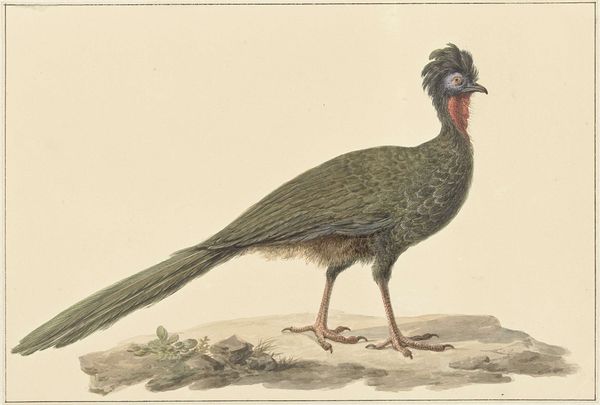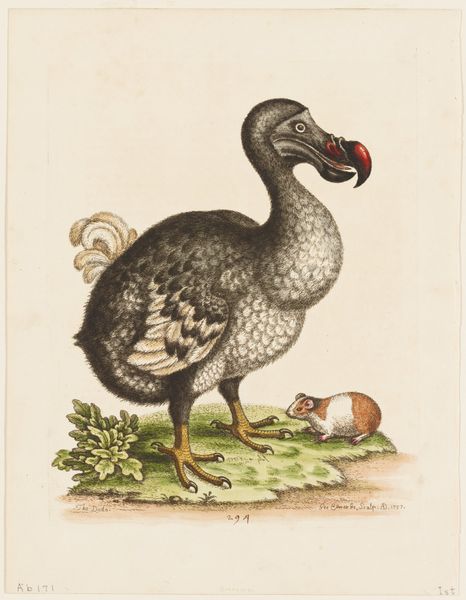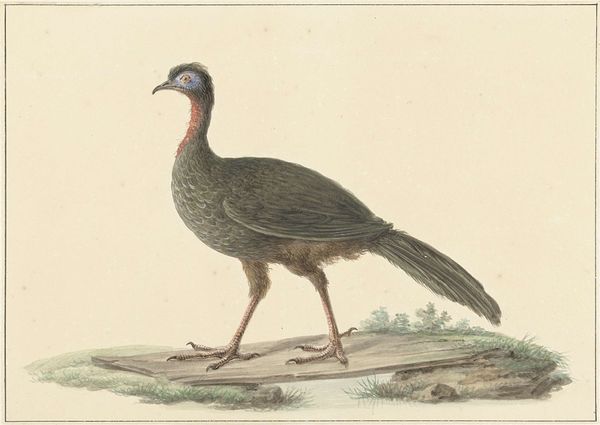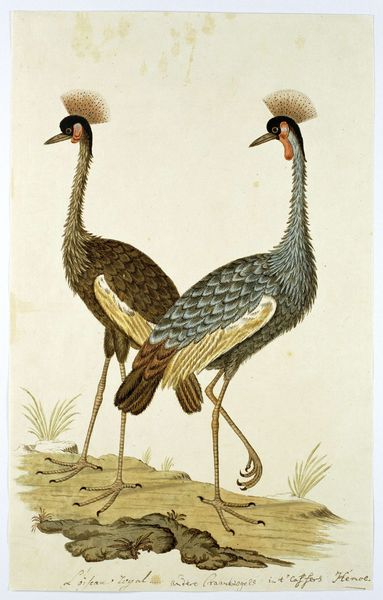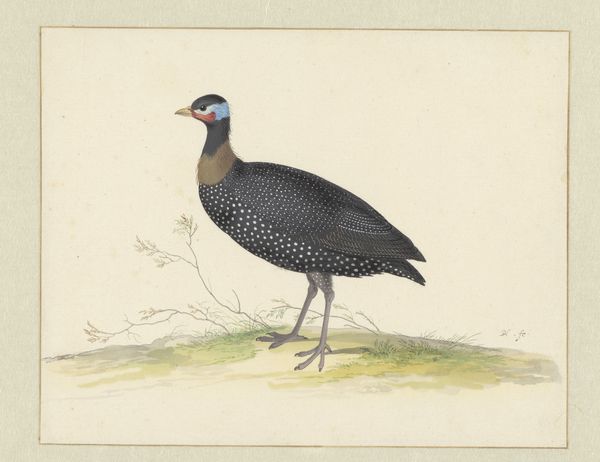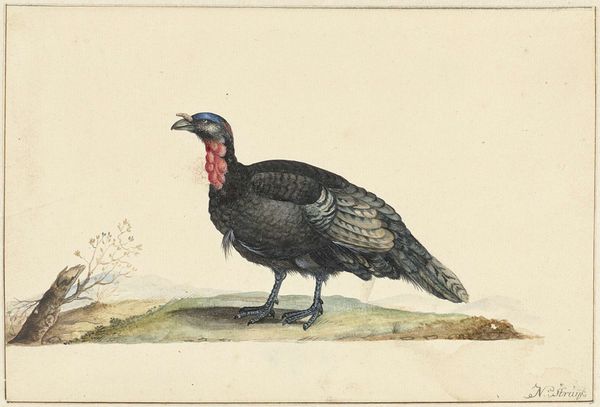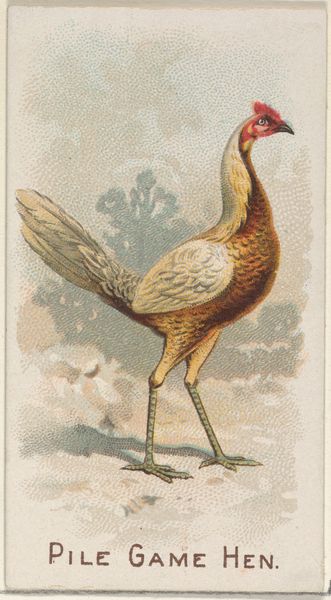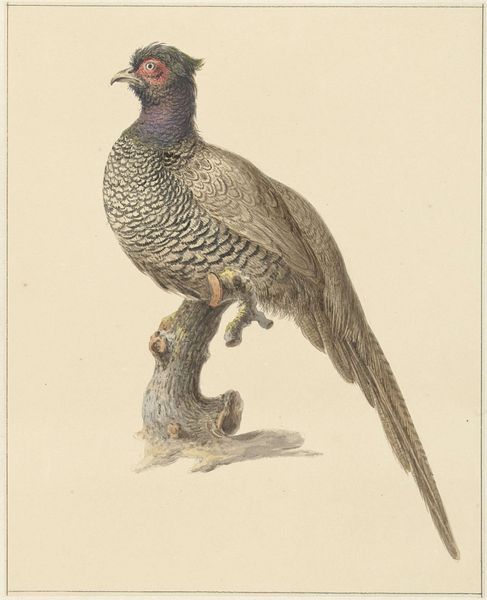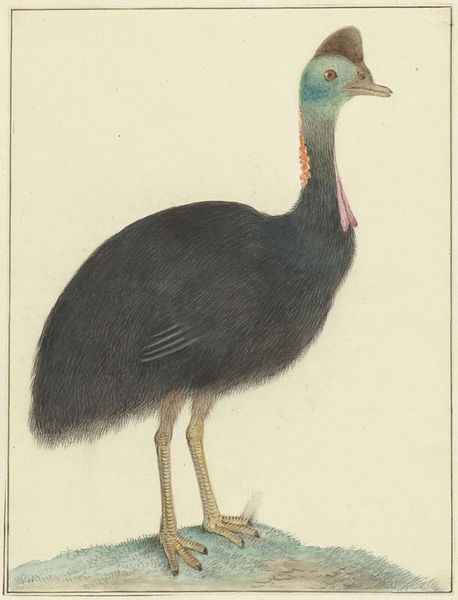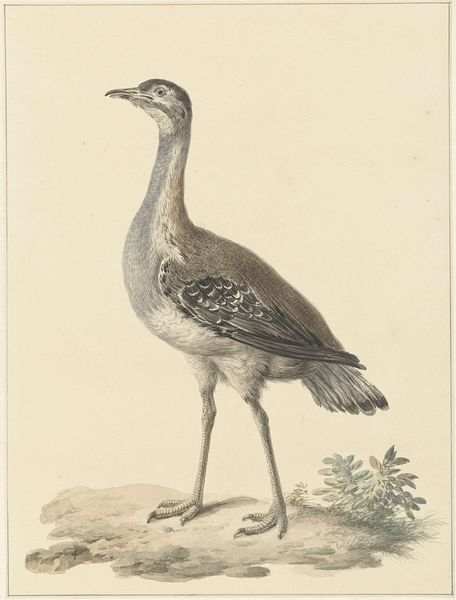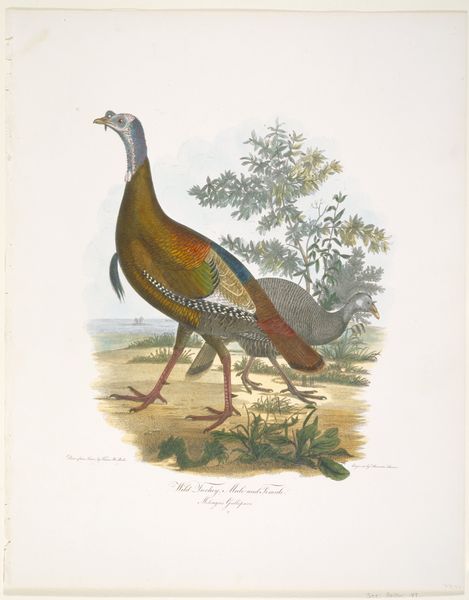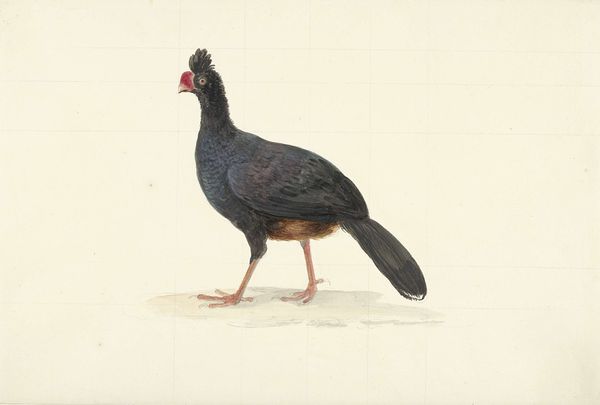
drawing, watercolor
#
naturalistic theme
#
drawing
#
botanical illustration
#
figuration
#
watercolor
#
botanical drawing
#
watercolour illustration
#
academic-art
#
botanical art
#
realism
Dimensions: height 300 mm, width 238 mm
Copyright: Rijks Museum: Open Domain
Pieter Pietersz. Barbiers made this watercolor of a crested guineafowl sometime around the turn of the 19th century. We can understand this work as a product of the Enlightenment's scientific and encyclopedic ambitions. European powers were extending their reach around the globe, documenting and classifying the flora and fauna of newly accessible regions. Barbiers was working in the Netherlands, and it is likely this guineafowl came from either Africa or perhaps even Asia, where the Dutch East India company was active. In its form, the image emphasizes accuracy and detail over artistic expression. However, we must also consider the cultural context. The scientific gaze was often intertwined with colonial exploitation. The act of naming and categorizing nature was a way of asserting control over it. To truly understand this artwork, one must delve into the complex interplay between science, colonialism, and art in the 18th and 19th centuries, drawing on sources from natural history, colonial archives, and art history.
Comments
No comments
Be the first to comment and join the conversation on the ultimate creative platform.
